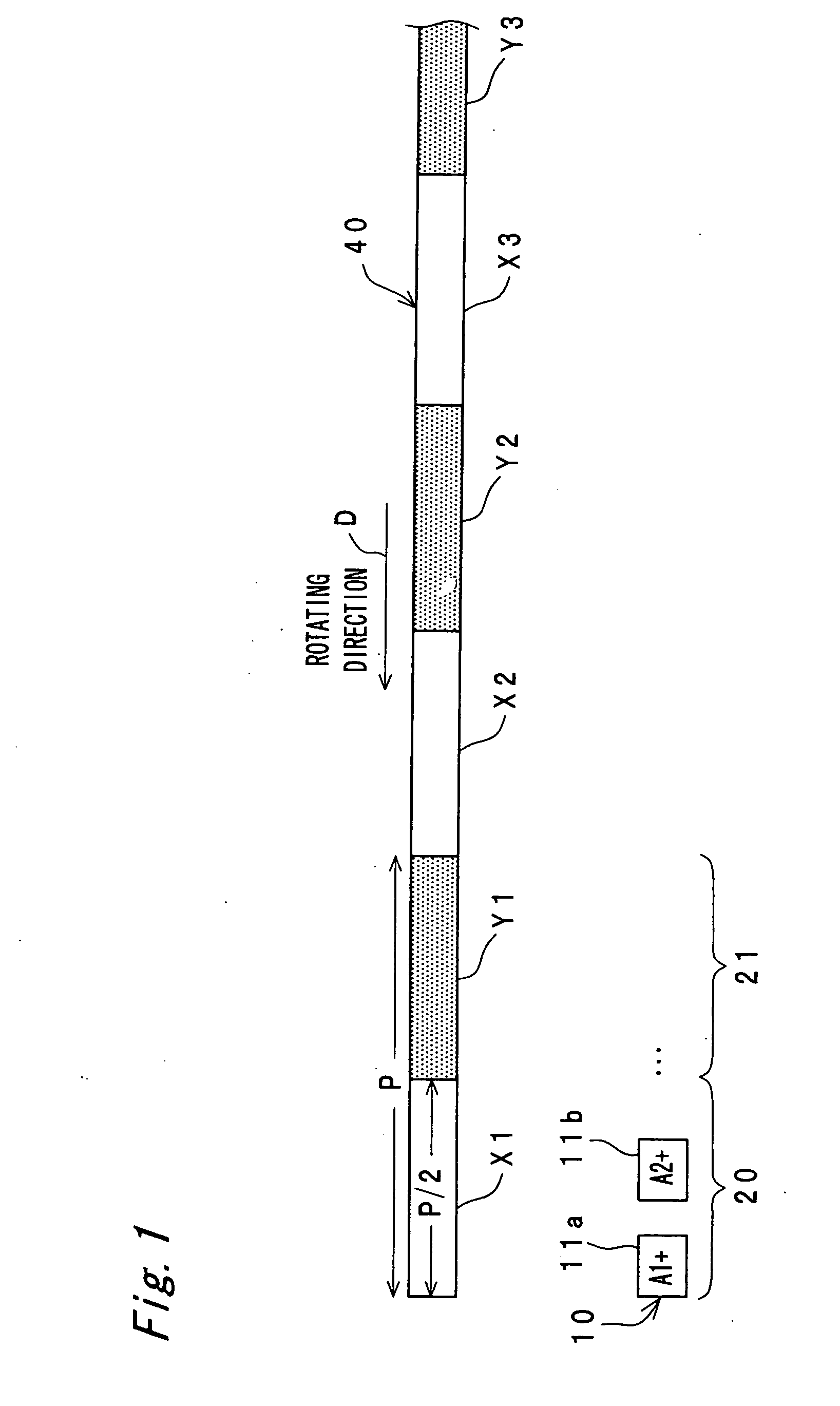Photoelectric encoder and electronic equipment
- Summary
- Abstract
- Description
- Claims
- Application Information
AI Technical Summary
Benefits of technology
Problems solved by technology
Method used
Image
Examples
Embodiment Construction
[0154] The present invention will be described in detail below by the embodiments shown in the drawings.
[0155]FIG. 10 shows the cross section of the detection section of the photoelectric encoder of the light transmission type of one embodiment. In the photoelectric encoder, a light-emitting section 142 is lodged on one side (upper side in FIG. 10) of a casing 145 that has a slot 147 at an approximate center, and a light-receiving section 144 is lodged on the other side (lower side in FIG. 10). With this arrangement, the light-emitting section 142 and the light-receiving section 144 face each other. The light-emitting section 142 is constituted by mounting a semiconductor light-emitting chip 141 that serves as a light-emitting device on a header portion 148a of a lead frame 148 and sealing the same with a transparent resin 152. The light-receiving section 144 is constituted by mounting a semiconductor light-receiving chip 10 that includes a plurality of light-receiving devices on t...
PUM
 Login to View More
Login to View More Abstract
Description
Claims
Application Information
 Login to View More
Login to View More - R&D
- Intellectual Property
- Life Sciences
- Materials
- Tech Scout
- Unparalleled Data Quality
- Higher Quality Content
- 60% Fewer Hallucinations
Browse by: Latest US Patents, China's latest patents, Technical Efficacy Thesaurus, Application Domain, Technology Topic, Popular Technical Reports.
© 2025 PatSnap. All rights reserved.Legal|Privacy policy|Modern Slavery Act Transparency Statement|Sitemap|About US| Contact US: help@patsnap.com



